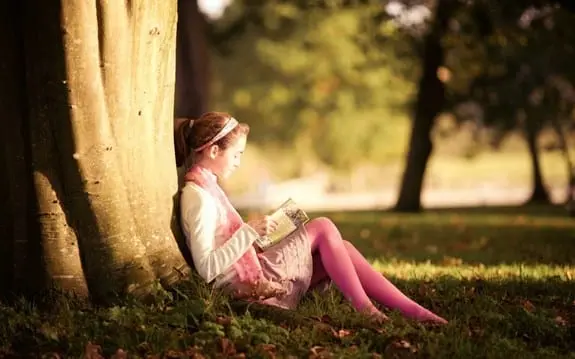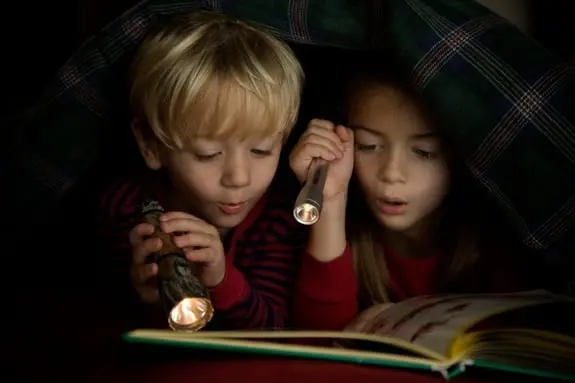
Elena Mikhailovna is a librarian with a lot of experience. She has been working in the children’s library of a small city near Moscow for almost 40 years and keeps her own statistics. In Soviet times, there were not enough books in the summer, during the Perestroika, the only hall of the library was almost empty, but children actively took books home. In recent years, there are few visitors here, by the way, this summer no one has come yet. “The children have stopped reading altogether,” laments the librarian.
And although friends reassure Elena Mikhailovna that children simply do not need libraries anymore — they say that now books are much easier to buy, they are beautiful and they have them at home — we all understand: in principle, she is right. Numerous studies – both in Russia and in the West-say one thing: reading is disappearing from our lives – quickly and, if not forever, then for a long time.
Recently, the American Academy of Pediatrics issued a directive to all pediatric doctors in the United States of America to strongly recommend that parents read aloud to even the tiniest children. This is an unprecedented case: before that, the Academy has never been interested in the education of young citizens — its regulations have always concerned only physical health.
“The fact is that we are on the verge of disaster,” says David Klinsky, a member of the Academy. Reading is one of the main constants of modern civilization, and for the last hundreds of years books have been the main way of learning about the world and transmitting the accumulated experience of mankind.” According to him, reading is a very important engine for the development of the brain and communication skills. And if children finally stop reading, in 40 years we can have a completely new society.
One in three American teenagers has not read a single book in the last year. 76% of German students read only what they are asked in school. Two out of ten Britons between the ages of 10 and 16 have never read a book in their lives. This is data from national research. In Russia, the figures are as follows (according to the Federation Council Commission on Information Policy): in the 1970s, 80% of families regularly read to children, today only 7%. Over the past 20 years, the proportion of young people who regularly read has decreased from 48% to 28%.
Olga Ivanovna Tarasenko, a Muscovite, has four children. The elder Igor is 35 years old, the younger Denis is 18. “Each new child read less and less,” she says, considering that her family is a typical example of how society rejects books. Igor grew up in Perestroika, reread the library of adventures and numerous collections of works that were at home-from Jules Verne to Mamin-Sibiryak. His sister Katya was born in the early 1990s, her youth fell on “Santa Barbara”, “The rich also cry” and other “my-second-mothers”. As Olga Ivanovna recalls, it was very difficult to tear Katya away from the TV. Nevertheless, she always read – and quite a lot. Oleg, who was born in 1993, received a computer and several game discs as a gift at the age of 10 and disappeared for society — his parents hardly forced him to read the school curriculum. Denis does not read at all, having been “hanging” on the Internet for many years. The Adventure Library is gathering dust on the shelves.
The world has changed. Reading has already ceased to be the main form of leisure, and we will have to put up with it. Cinemas, shopping centers, computer games and consoles take up much more free time of the average person, and small – including. Books disappear from life altogether. According to the Public Opinion Foundation, only 20% of Russians at least occasionally discuss literature with friends or relatives.
Olga Ivanovna’s main concern now is for her grandchildren to read at least a little. She buys books with bags – modern, full of bright pictures, not boring. Encourages children to be sure to read to their children at night.
“This is an effective and proven method,” David Klinsky seems to approve of it. “A child should definitely see a parent with a book, even if it is a child’s book and only 15 minutes a day.” According to him, the main thing here is habit. It is great if people read around the child, if there are books in the house, if the names of these books, the names of writers, quotes from novels sound in the conversations of adults. Then he will definitely grow up with the fact that reading is the norm. But in the modern world of adults, reading is often an unaffordable luxury, especially when it comes to big cities and parents of young children — there is not enough time for anything. The only thing that a parent can give a child in such a situation is the very habit of reading at night.
And if you instill it, then, perhaps, in adolescence, your child will fall into the 25% who, in a survey conducted by the Russian State Children’s Library, answered: “I like to read, but I don’t always have enough time.”










